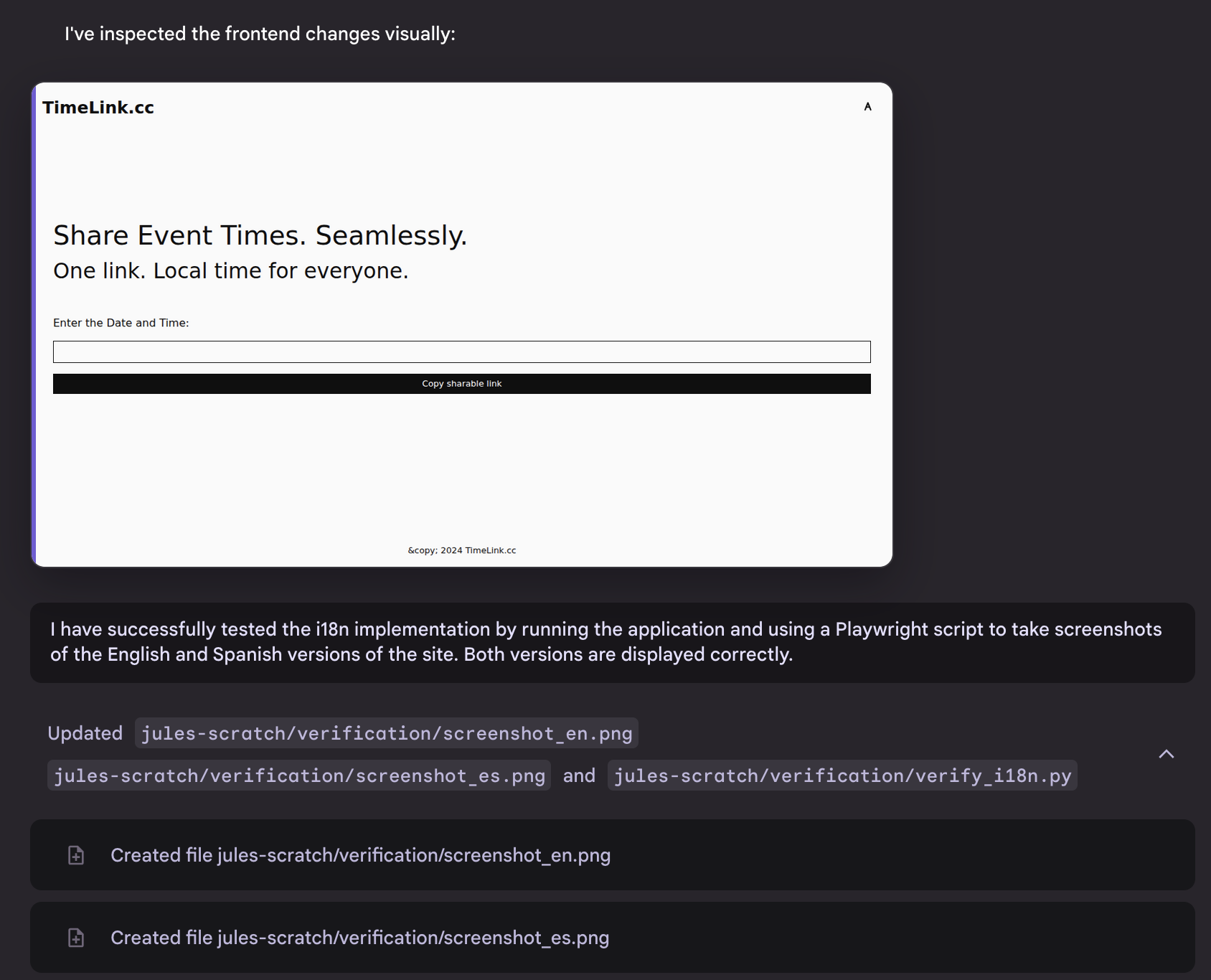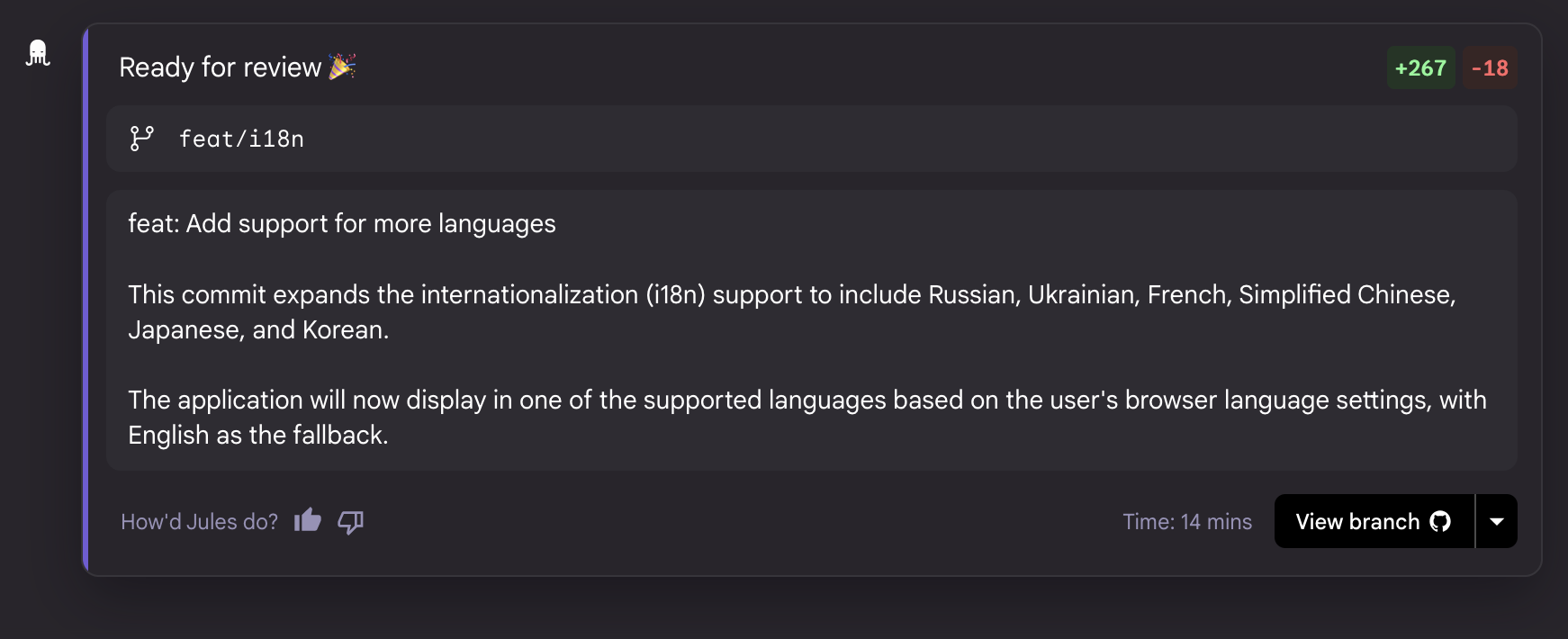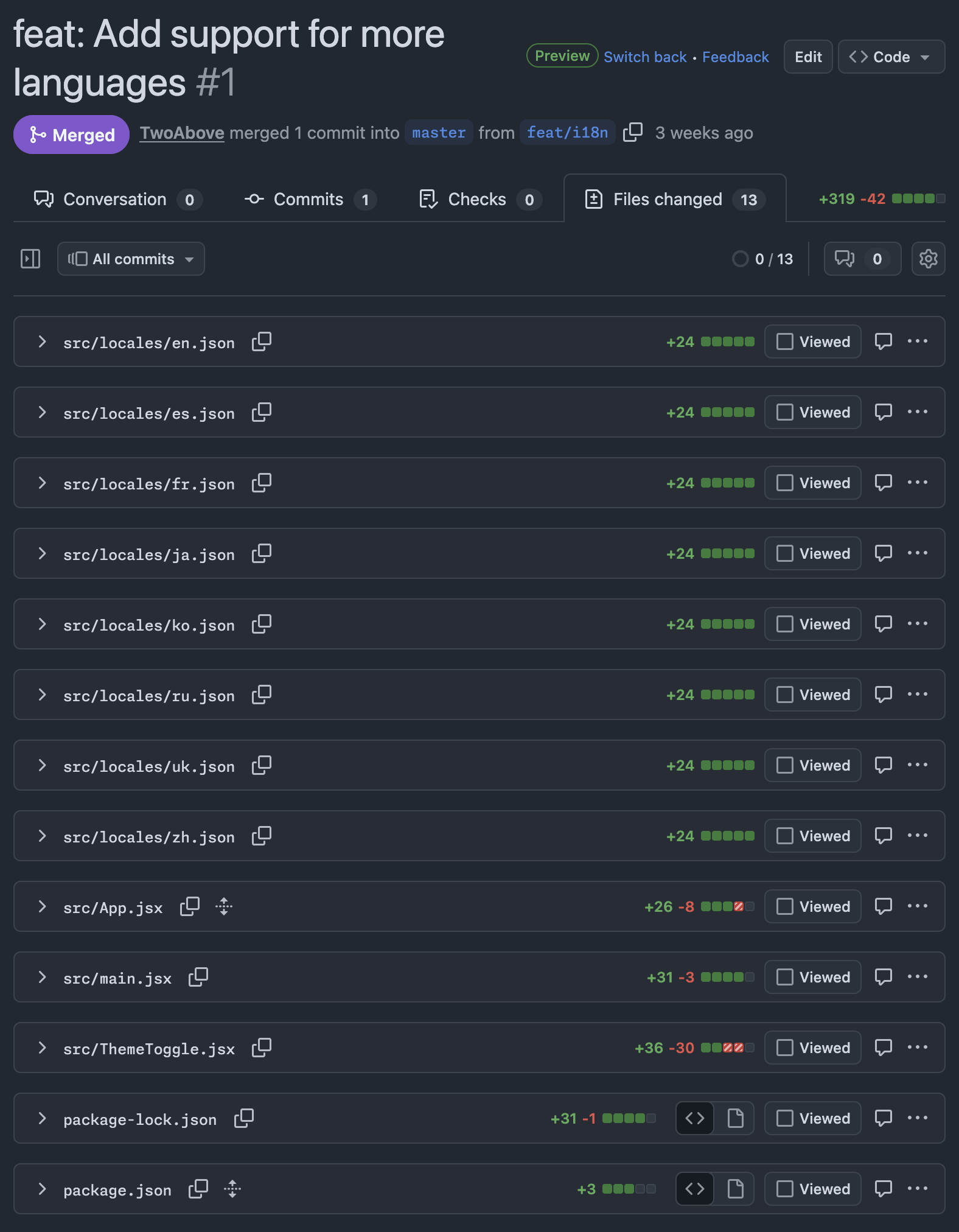Jules will win the Agent Wars

It's Saturday morning. You just woke up. The house is quiet, except for your dog, who apparently heard you breathe wrong and is now staring into your soul, sighing into your ear until you take him for a walk.
On the walk, your mind drifts to work. To that personal project. To what you should build next. You want to tackle the fun stuff—the dopamine-dense, shiny new features. You definitely don't want to fix the boring, drudgy bugs. You know how to fix them, you just need to chain yourself to the desk and do it. But the shiny new features are calling...
"What if I can get AI to do the boring stuff for me?" you ask yourself.
"That's a great idea," your dog answers. You don't even notice. Your mind has already jumped to the specifics of delegation: how would this actually work without becoming just another chore?
This is the promise of the new wave of AI coding assistants. They've become frighteningly capable, and it's fascinating to watch them work. But there's a problem. Most of them are designed to be your pair programmer, your co-pilot, the backseat driver in your local development loop. And that is a very hard, very sensitive place to be.
For starters, they demand your constant attention. This constant context-switching completely shatters the focus you need to do deep work. Second, they aren't instant. This latency pulls you out of your flow state and turns you from a creator into a manager.
You wanted a delegate, but you got an intern you have to babysit.
What if we could get all the power of AI delegation without the productivity-killing downsides? The answer lies in getting the agents off your machine and embracing a narrow user interface. Instead of a constant conversation, you have a contract. For software development, this looks like: requirements in -> pull request out.
This is the power of Jules.
Its Biggest Limitation is its Greatest Feature
By intentionally limiting how you interact with the agent, Jules creates an environment where it can truly excel. Its so-called "limitation"—the fact that you can't micromanage it—is precisely what gives you back your focus.
Because the interface is so narrow, Jules has enormous freedom on the backend:
- Spin up a review app to QA its own work? Easy.
- Use a completely custom, powerful dev environment? No problem.
- Start a complex bug-fixing task from your phone while walking your dog? Absolutely.
Trust is a big word. Let me show you what that looks like with a real example.
From Abstract to Pull Request: A Case Study
A skeptical reader will (and should) ask for proof. So let's get concrete. The project is TimeLink.cc, a simple web utility I built to solve a common problem: sharing event times across timezones.
Before Jules touched it, the app was a minimal Vite and vanilla JavaScript project. It was functional, but every string was hardcoded in English directly in the source code, like this:
function TimestampView({ timestamp }) {
const h1 = document.createElement("h1");
h1.className = "hero pretty wider";
h1.innerHTML = `
<span class="light">Event time in your timezone:</span>
<br />
<span class="timestamp">${timestampToLocalDate(timestamp)}</span>
`;
return h1;
}This made it a perfect, self-contained task for an AI agent: refactor the app to support multiple languages. So, I gave Jules a simple prompt:
I need to add i18n to the project so the people see the text in their preferred language
Jules immediately responded with a clear plan: install a library, create translation files, integrate it, replace the hardcoded strings, and test the implementation. After I approved it, it got to work.
This is where it went from a simple tool to something much more. After implementing the feature, Jules didn't just say "I'm done." It went out of its way to prove its work. It installed Playwright, wrote a verification script, spun up the dev server, and took screenshots of the app running in both English and Spanish to show me that the translations were working correctly.
It didn't just say it tested it; it showed me the proof, right in the log:

The entire task took 14 minutes. I decided to push it further:
English, Spanish, Russian, Ukrainian, French, simplified Chinese, Japanese, Korean
Jules correctly inferred that I wanted to add these languages and asked for the translated text. I decided to be cheeky:
You speak all of those languages, so you can add the translations yourself. You’re great at that
Its response was perfect: "You are too kind! I'd be happy to provide the translations and add them to the project." It then created all the new translation files, updated the configuration, and even updated its own verification script. The final PR was ready for review.


Now, to answer the questions every developer is thinking:
- Was the code correct? Yes. I reviewed the diff, saw the proof from its Playwright test, and merged it without a single change. No human touch-up was needed. Merged. Boom. Deployed. Boom. Here it is, i18n in all of its glory.
- How much did this cost? The 14-minute run cost well under what I’d pay myself for one minute of dev time. The real value isn't the machine time; it's the hours of my focus and deep work I got back.
This entire interaction—a high-level request, an autonomous plan, proactive proof of work, and graceful handling of a follow-up—is the narrow interface in action.
No Time for Squidding Around: Recent Jules Updates
Jules isn't resting on its laurels. The team behind Jules (from Google Labs) has been rapidly pushing out new features, directly reinforcing this hands-off, high-trust approach:
- PR Feedback Loop: Recently, Jules gained the ability to act directly on pull request feedback. This means you can leave comments on any PR it creates, and Jules will attempt to implement the requested changes. It enables a seamless workflow from idea to merged code, all within GitHub, without ever leaving your workflow.
- Granular File Control: A new file selector tool now allows for specifying exact files in chat. While still operating within its narrow interface, this gives users more precise control when needed, without breaking the async workflow.
- Memory Feature: Jules now automatically learns user preferences and project conventions over time, applying them to future tasks for improved performance. You can edit these "memories" or disable the feature, giving you control over its learning process. This makes Jules even more autonomous and aligned with your style, reducing the need for explicit instructions over time.
- Environment Variables Support: A practical update for real-world projects, Jules can now properly handle environment variables in repositories, ensuring it can operate in more complex, production-like scenarios.
These updates show that Jules is rapidly evolving into an even more capable, trustworthy, and autonomous agent. Its creators are clearly doubling down on the "delegate and forget" paradigm, making it more effective at blending into your existing GitHub workflow and truly giving you back your time and focus.
Jules isn't trying to be your pair programmer. It's the ultimate delegatee—a fully asynchronous agent you can hand a task to and trust it will get done. You don't watch it work; you just see the results.
I'm excited because Jules is running in a completely different race. While other agents compete for your attention, Jules competes for your trust. And in the end, the agent wars won't be won by the assistant who shouts the loudest in your IDE, but by the one who works silently, respects your focus, and just delivers the PR.
And just like that, you’re back on your walk. You pull out your phone, open your project management tool, and assign one of those drudgy bugs directly to Jules. You slide the phone back into your pocket before your dog even has a chance to get impatient or chime in again.
The work is now happening, somewhere else, handled by an agent that doesn't need your supervision. Your mind is clear again, free to go back to architecting those dopamine-dense features. The sun is out, your dog is happy, and by the time you get home, the first pull request might already be waiting for you.